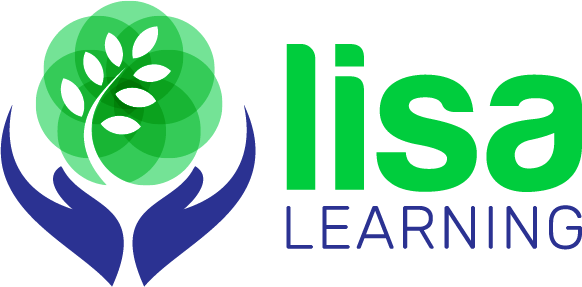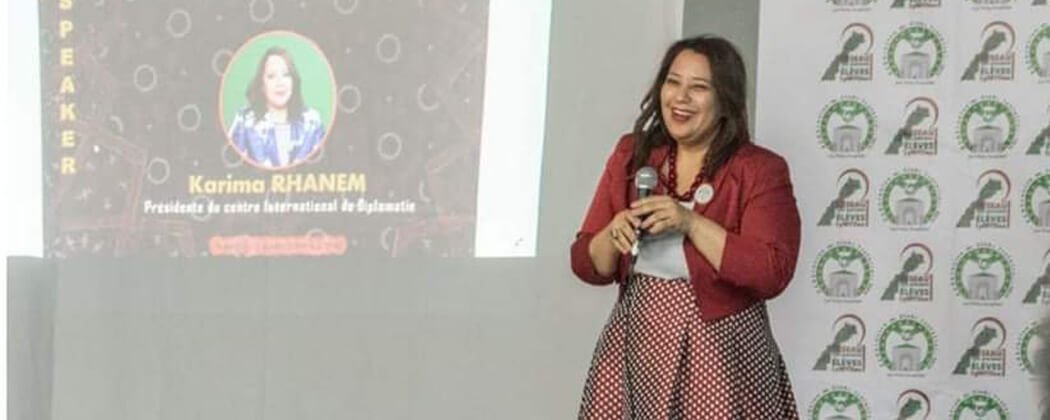Karima Rhanem Makes the Covid19 Crisis an Opportunity to Develop Youth Capacities
The Founder of Africa My Home and president of the International Center for Diplomacy, Karima Rhanem turns the Covid19 crisis into an opportunity to stimulate reflection on post-covid19 in Africa and to develop the capacities of young people, unlocking the potential of those who are in search of or who lost their job during the crisis.
Impacted like everyone else by the coronavirus crisis, the pan-African globetrotter Karima Rhanem has continued to work to make the organizations that she is leading more resilient in order to reduce their vulnerabilities and ensure the continuity of activities impacted by the lockdown measures, adapting its working methods and approaches and going digital.
Through these two organizations Africa My Home and the International Center for Diplomacy, Karima Rhanem is restlessly defending issues relating to youth and women at the African level and is implementing several programs to strengthen their capacities and empower them to own their local solutions, using innovation and technology to solve Africa’s development challenges. Her exemplary work made her one of the top influential young leaders of the African continent with more than 34 national, continental, and international awards and honors.
As a young leader with a lot of creativity and initiatives for coaching African Youth, Rhanem also received the “2019 Youth Mentorship Award” and her story has been reported in a book titled “A Growing in Africa: The Beauty of Unemployment” by Author Gift Chindima Nnamoko Orairu, as one the stories with the most success in the continent in terms of social leadership, youth empowerment and mentorship.
Karima Rhanem was also selected among the TOP 100 Women CEOs in Africa, a ranking by Reset Global People and Pulse with the support of the public relations and rating agency Avance Media, and among the top 30 and 100 most influential young leaders in Africa and Europe for the year 2019 by the Pan African Youth Leadership Foundation. She was also named Humanitarian Ambassador by the World Habitat Ambassadors Foundation.
Karima has previously worked as a Public Policy Advocacy Specialist at Counterpart International and as a Development Outreach and Communication Specialist at USAID/United States Embassy in Morocco. She was also Managing Editor for the Morocco Times newspaper.
With confirmed 20 years of professional experience in youth and civil society and gender policies, strategic communications, advocacy, digital media and press relations, diplomacy, and international development, Karima Rhanem used her skills to empower youth to find alternative means of resources by exploring online opportunities.
“Each person has contributed in their own way and their own resources to the management of this crisis. Apart from the human nature of my actions, I focused more on empowerment. With the Covid19, many skills and professions have emerged and are essential for the professions of tomorrow leaders,” She noted, specifying that despite the technical difficulties, and even more those related to mobilizing financial resources, the digital opportunities are huge.
Affected by the crisis, she could neither continue her work which depends much more on events nor travel nor return to Istanbul where she had been living recently. Despite these difficulties, she never gave up and did not hesitate through Africa My Home or the International Center for Diplomacy to develop several partnerships with African organizations to launch reflections on the impact of Covid19 on the African continent.
She was able to mobilize more than 100 actors and experts around more than 50 discussion webinars and 30 institutional partners who contributed with opinions and recommendations on crisis and post-crisis management. They dealt with various subjects such as digital transformation, Civic Tech, the crisis impact on young people, women, and vulnerable groups, e-learning, and digital diplomacy.
Aware of the importance of digital capacity among young people, she launched an online academy of free training on the different aspects of digitalization with the participation of African experts in branding and e-reputation, artificial intelligence, cybersecurity, teleworking and e-learning tools, e-leadership and e- advocacy, digital diplomacy, and Civic Tech.
This academy is conducted in partnership with www.laclasse.ma a digital educational platform created by young Moroccans living abroad allowing students and teachers to use this free platform to continue distance learning during and beyond the period of lockdown. Karima Rhanem also supervised a team of young people to carry out research on the impact of Covid19 on the African continent and the possible scenarios for the post-crisis by focusing on young people and women in particular.
It is true that digitization has made life easier for millions of citizens, especially in terms of access to services. Yet, a considerable number of Moroccans do not yet benefit from several services as certain regions or towns and villages do not always have the necessary infrastructure or connectivity and many of its inhabitants have no purchasing power to acquire smartphones or tablets. It is then that she works with different targets to reach as many young people as possible through the services she provided through her two organizations.
“Even with the free services we offered, we were not able to reach everyone who registered for these trainings. The connection was a serious problem and we met sometimes power cuts among other issues,” she added
“The other challenge encountered is technological fatigue. Everyone from the start of the lockdown has been using the internet, digital tools and everyone is organizing webinars and Facebook Lives. This caused an online traffic jam. After three months, people became tired of telecommuting, e-learning, and Lives on Facebook. We had to be more creative to change the approaches to retain young people and ensure their participation and commitment,” she explained.
According to her, teleworking also requires a calm and professional workspace, which is not the case for everyone. She noted that “many do not have their own spaces, nor the favorable family environment to do so. The notion of private space is less existing in African families in general”
To solve financial problems, Karima Rhanem has opted for the principle of crowdfunding in kind by focusing on the exchange of expert services through the development of strategic partnerships with other organizations. The funding for their projects before the Covid19 crisis was varied. It has had subsidies through calls for projects or through sponsorship requests and also funding where the partner pays directly for services, in addition to membership fees. With the crisis, the ultimate solution was in-kind contributions, especially through the exchange of expertise.
Given the financial difficulty faced by several young people, Karima Rhanem attests that her diplomacy center has launched the call for free membership for the year 2020 and that a study has been scheduled to identify new priorities and guidelines to update their strategy and actions for Post Covid19.
Regarding the difficulties encountered for the management of the International Center of Diplomacy or Africa My Home, Karima Rhanem clarified that being a leader requires a lot of effort, patience, and ability not only to manage multifunctional and multicultural teams, but also to motivate, influence, and strengthen them to achieve the expected objectives with a team spirit and a conviction that success is collective.
She believes that each member of her team has added value to the results of their work. To do this, Karima noted ” that one has to start with himself/herself and then strengthen his/her own skills in agile methods. It is also necessary to find this motivation which will contribute to retain your members and make them feel a sense of belonging and a proper appropriation of projects and actions. ”
Through Africa My Home, it also offers paid consultation opportunities to young people when they arise.
For her, managing human resources is much more difficult than managing projects. Member engagement is key, especially when you are involved in projects with specific deadlines.
To solve this problem, Karima worked on streamlining efforts and adopted the competency-based approach in addition to coaching and learning by doing and capacity building of her team members.
Karima is currently working to promote the talents of young people to monetize their creations and connect them to online opportunities especially in this period of crisis where thousands of young people have lost their jobs.
The objective is to transfer knowledge and know-how of young talents by offering them paid teaching and training opportunities, enabling them to build their online reputation and branding while gaining money from home. For her, it is an effective way of thinking outside of the box to help young people to create instead of just waiting for a job. For her, it is an important step towards entrepreneurship.
Being an artist herself, who discovered her talent during the lockdown, she is working with a group of young artists to organize a digital exhibition, showcasing works highlighting artists vision of the Covid19 crisis and beyond.
Her main advice to young people is that it is necessary to “take advantage of this period of crisis in order to innovate. Youth has to enhance their talents and even monetize them. The digital world has no more borders; youth need to adapt a digital mindset and think about projects that can create wealth and impact. To do this, youth need to continuously look for capacity building opportunities and overcome failure phobias and consider them instead as a life learning experience, and above all, never give up »





